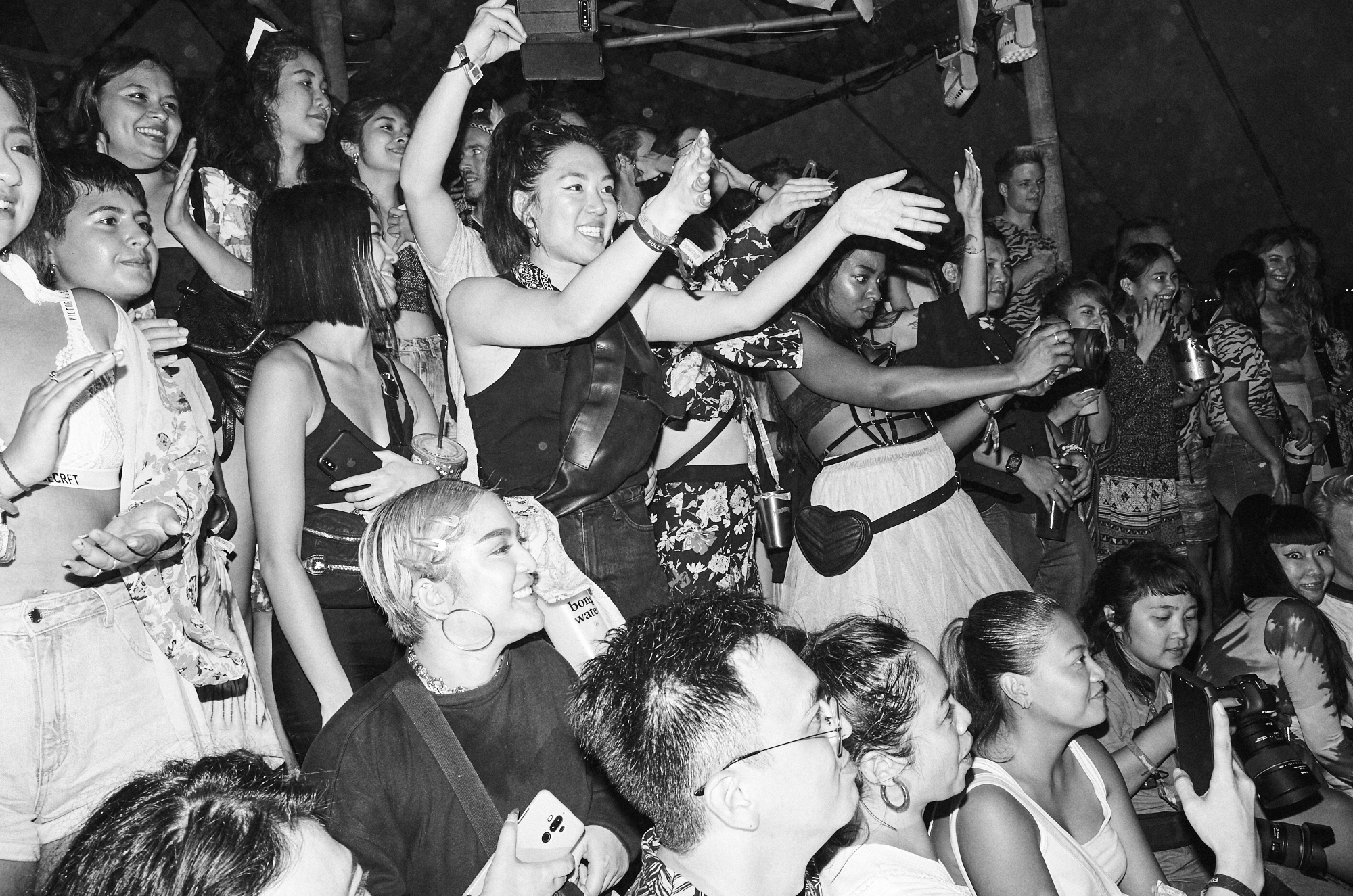Thailand is a country rightly famous for its queer scene, but sadly it’s one which is often viewed through a reductive and fetishising lens: think sex tourism, ‘what happens in Bangkok stays in Bangkok’-style lads holidays, and transphobic jokes about Lady Boys. But, it should go without saying, this stereotyped view does Thailand a huge disservice. In December 2019, Wonderfruit festival — held in the southern city of Pattaya — staged an LGBT takeover which testified to the strength of the country’s thriving and multifaceted queer scene. Curated by Bangkok-based collective Go Grrrls, the ‘God Save the Queer’ stage provided a platform to some of the most exciting DJs and artists at work in Thailand today. I went to speak to some of the key figures involved, in order to find out more about the realities of LGBT life and culture in a country which is often conceptualised as a kind of queer, orientalist paradise.
Wonderfruit festival has a strong focus on art installations and architectural design, and the venue for the queer takeover — a bright red bamboo pagoda lit by hanging orbs — was no exception. Beginning with a laid-back disco-heavy vibe throughout the day, both the atmosphere and music policy grew increasingly more frenetic as the night wore on, eventually taking in techno, indie rock, hip-hop and electro. Unsurprisingly, given the events focus on queerness, there was a lot of androgyny, voguing competitions and people wearing lavish costumes. Although the crowd was mostly Thai (with a good handful of British and Australian tourists — winter is a popular time to visit), the night wasn’t a world away in atmosphere from what you might expect at an alt-queer night in Hackney Wick, if perhaps less po-faced. There wasn’t so much of the insular self-seriousness which often characterises London techno nights. On the day of the event, I met up with the GO GRRLS — Mae Happyair, Dookie, and Cleo P — to find out more about their approach to queer clubbing.
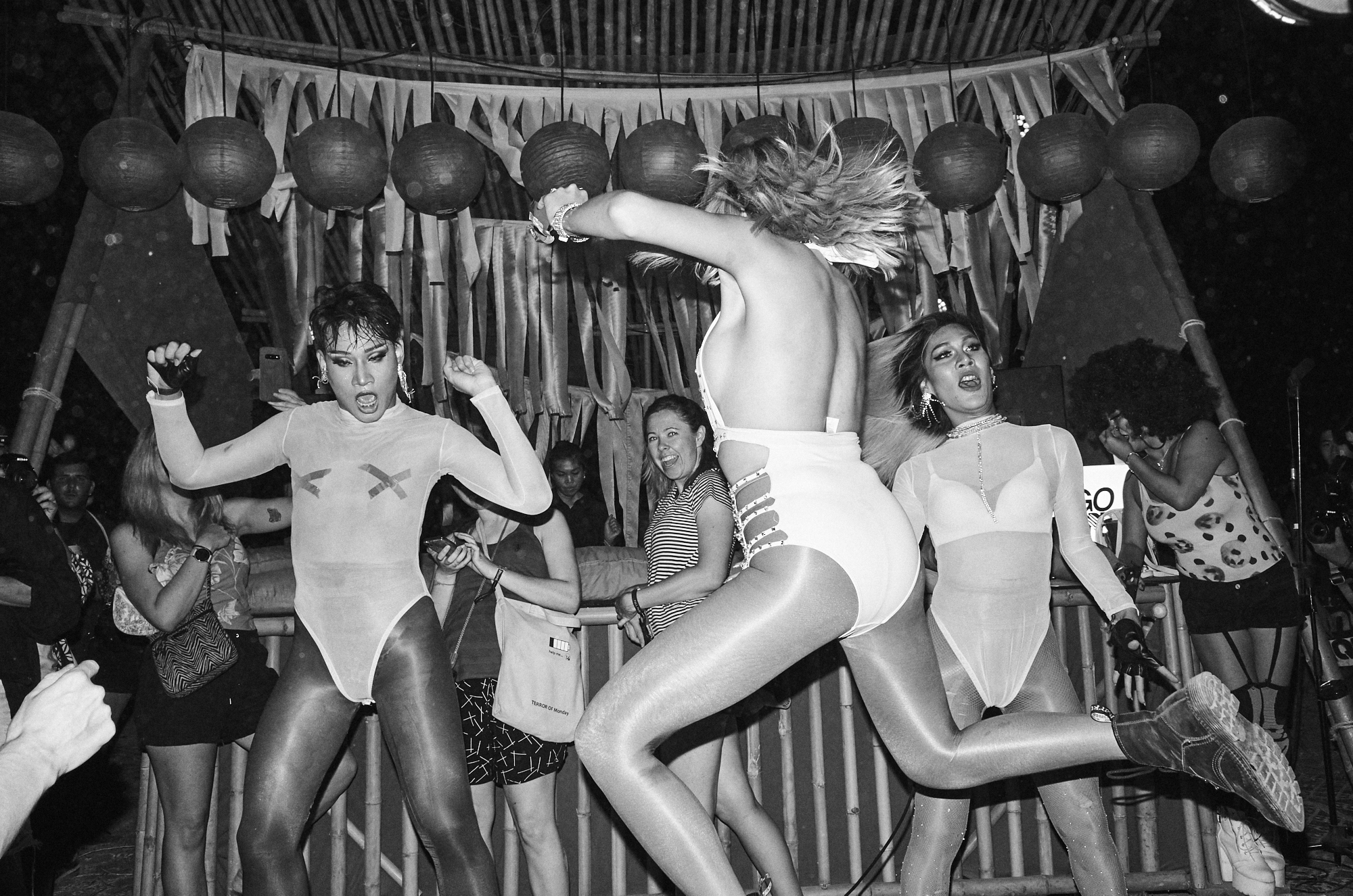
“Go Grrls started from when I went to Melbourne and really loved the queer parties there, where you had both boys and girls mix together,” says Dookie. “When I came back and we started the night, in 2013 there were no queer parties in Bangkok at all. The gay male and the lesbian scene were totally separated. We felt like we should do something that gathered everyone together. In the beginning, when gay men and lesbians met each other at our night, they didn’t feel good about it because they were used to only partying with people of the same gender, but we kept at it, we wanted to educate people about the idea of ‘queer’.”
As well as focusing on inclusivity, it was important for the GO GRRRLS that their club night would be free from harassment. “When people went to parties in the mainstream scene,” says Mae, “often people would touch their bodies without permission and sometimes they didn’t have the voice to talk about that. It was something hidden in the gay scene. But in our party I want people to feel like, if they’re not safe or if someone does something to them, then they can tell us. I need them to feel like they can speak, and not think ‘well no-ones going to listen to me, because I’m gay’.”
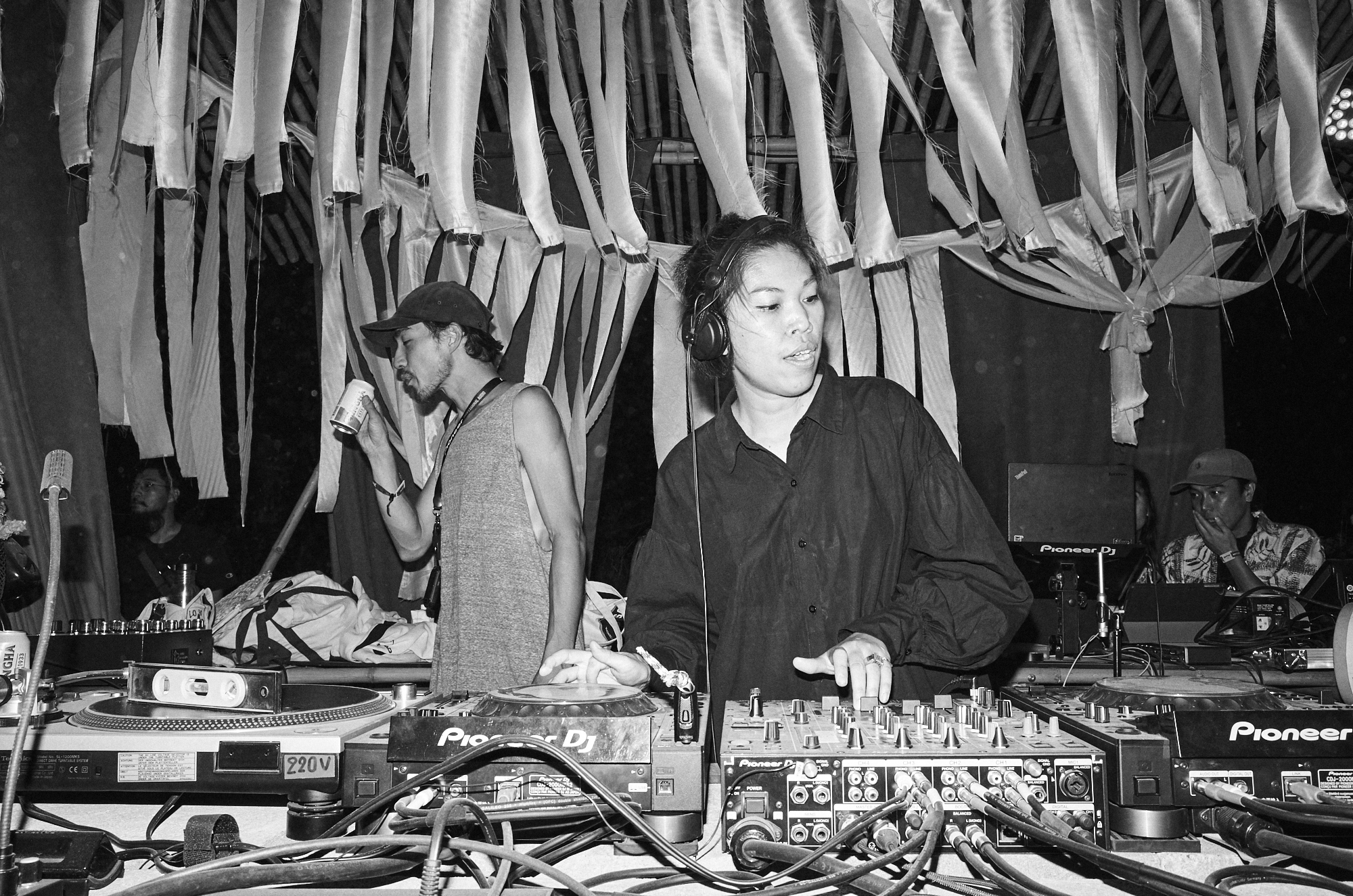
Thailand is well known across Asia for being progressive on trans rights — ‘kathoey’ have been a part of Thai culture for centuries, although whether the term is directly synonymous with ‘trans women’ is up for debate (it’s often thought of as a third gender). When I ask the GO GRRRLS what the transgender scene is like in Thailand, they agree that it’s a very open country. “There are trans Youtubers and Instagram influencers with millions of followers and subscribers,” says Cleo, “they can be the main person on a TV show — they’re not just the extra. We’re very welcoming here”. The influence of trans people isn’t just limited to the sphere of culture either: Thailand has recently elected its first transgender MP, which is a step ahead of the UK.
Despite all this, there are currently no legal protections for trans people in Thailand, which complicates the picture. Miriam Alegria (aka Wanton Witch, a DJ performing at the takeover) is a trans woman who moved to Bangkok from Malaysia, and she considers the much-vaunted trans progressiveness of Thailand to be somewhat superficial. “Trans issues are kind of treated like a joke,” she says. “We don’t talk about trans rights or whatever, it’s just a fun thing to joke about on TV. This isn’t meant to be hurtful or demeaning but people just don’t see what the big deal is, in terms of trans rights, because there’s always been trans people here.”
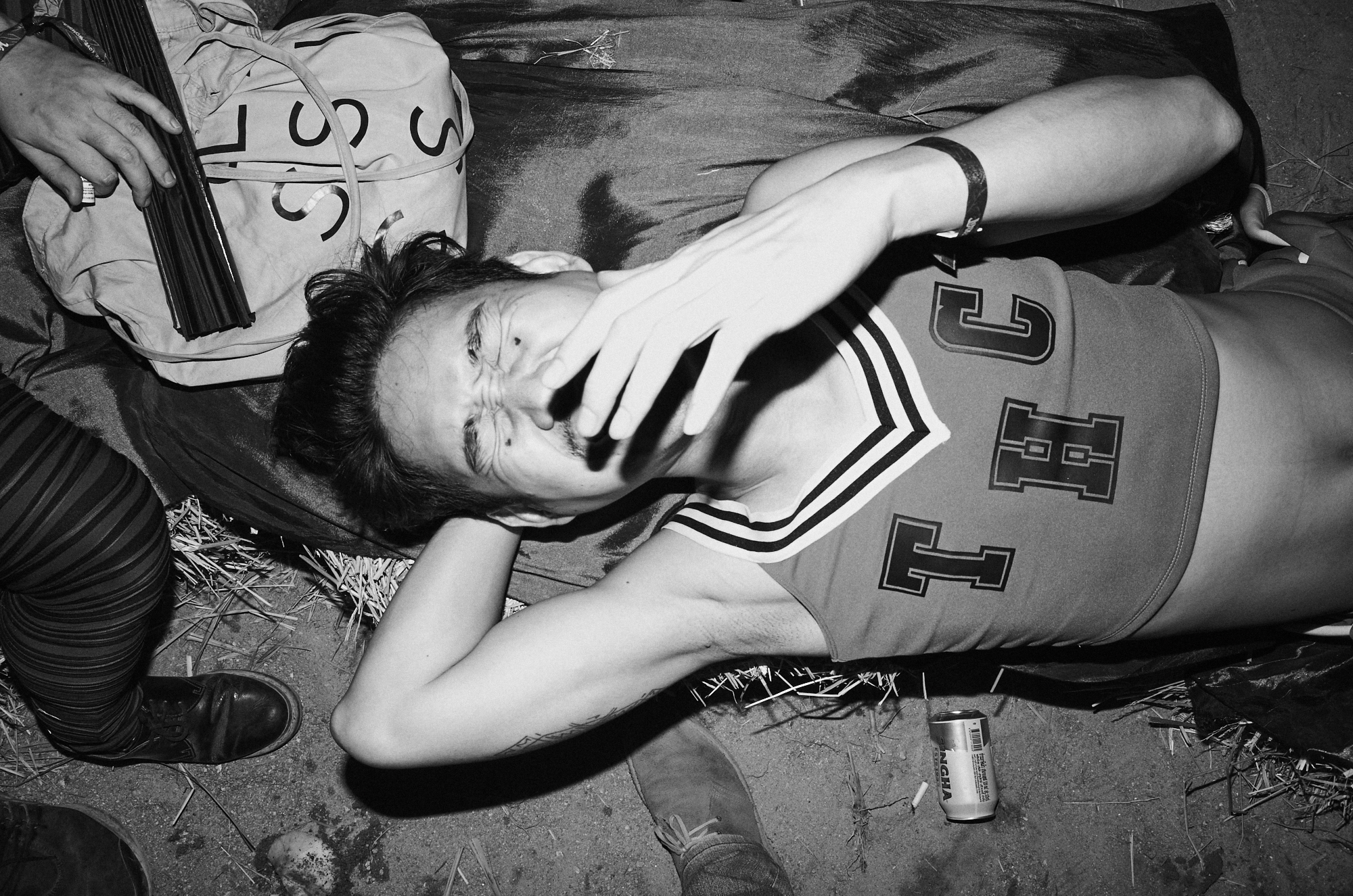
One striking difference between the trans experience in Thailand and the UK, however, is the complete absence of an organised anti-trans rights movement, such as the issue of ‘TERFS’. According to Miriam, it simply doesn’t exist in Thailand. In fact, when I’m explaining British transphobia to her (‘so they call themselves feminists, and they think of themselves as left-wing… but, like, they just really hate trans people?’) it all sounds freshly ridiculous to my own ears, and I’m slightly embarrassed on behalf of my country. According to Miriam, transphobia exists in Thailand as a problem of fetishisation, objectification, of not being taken seriously — it’s not an organised campaign like it is Britain (although it’s worth saying that violence against trans women is still very much a problem). In response to these issues, Miriam makes a point of drawing attention to the problems facing trans people in Thailand. “I always have shit to say in my sets. My intro is always quite political: my brand is a problematic trans woman with mental health issues shouting at you.”
Both the GO GRRLS and Miriam (who runs a sister collective called ‘NON NON NON’) agree on the importance of creating their own space. “It’s about coming together and feeling safe and all that bullshit — it’s cliche!” says Miriam. Across eight hours of unabashed hedonism and collective joy, the takeover certainly achieved this. Although not intentionally — no-one I spoke to seemed to particularly care about what people in the west might think about their scene — it serves as a rejoinder to all the tired cliches you might have heard about queer Thailand.
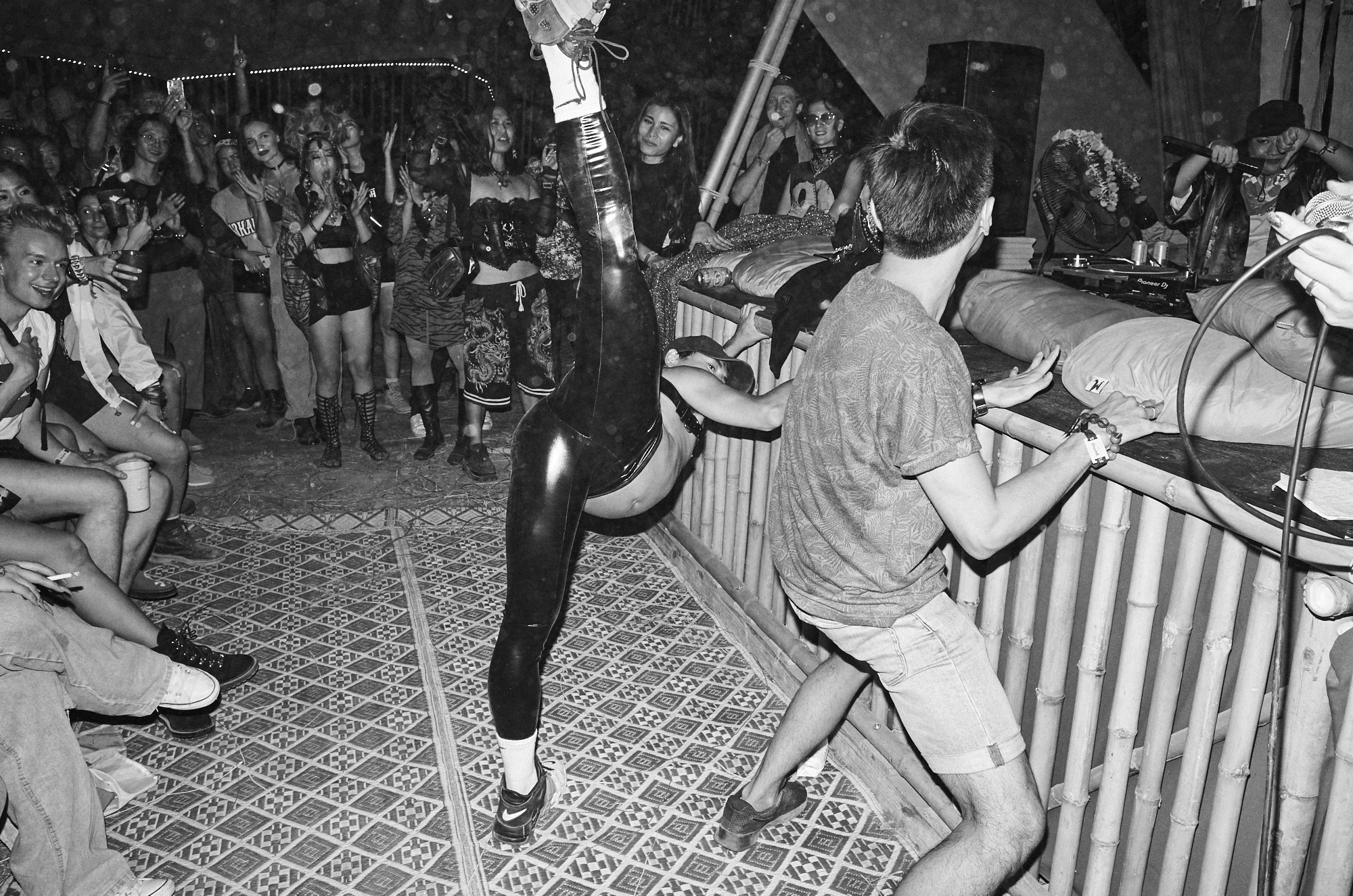

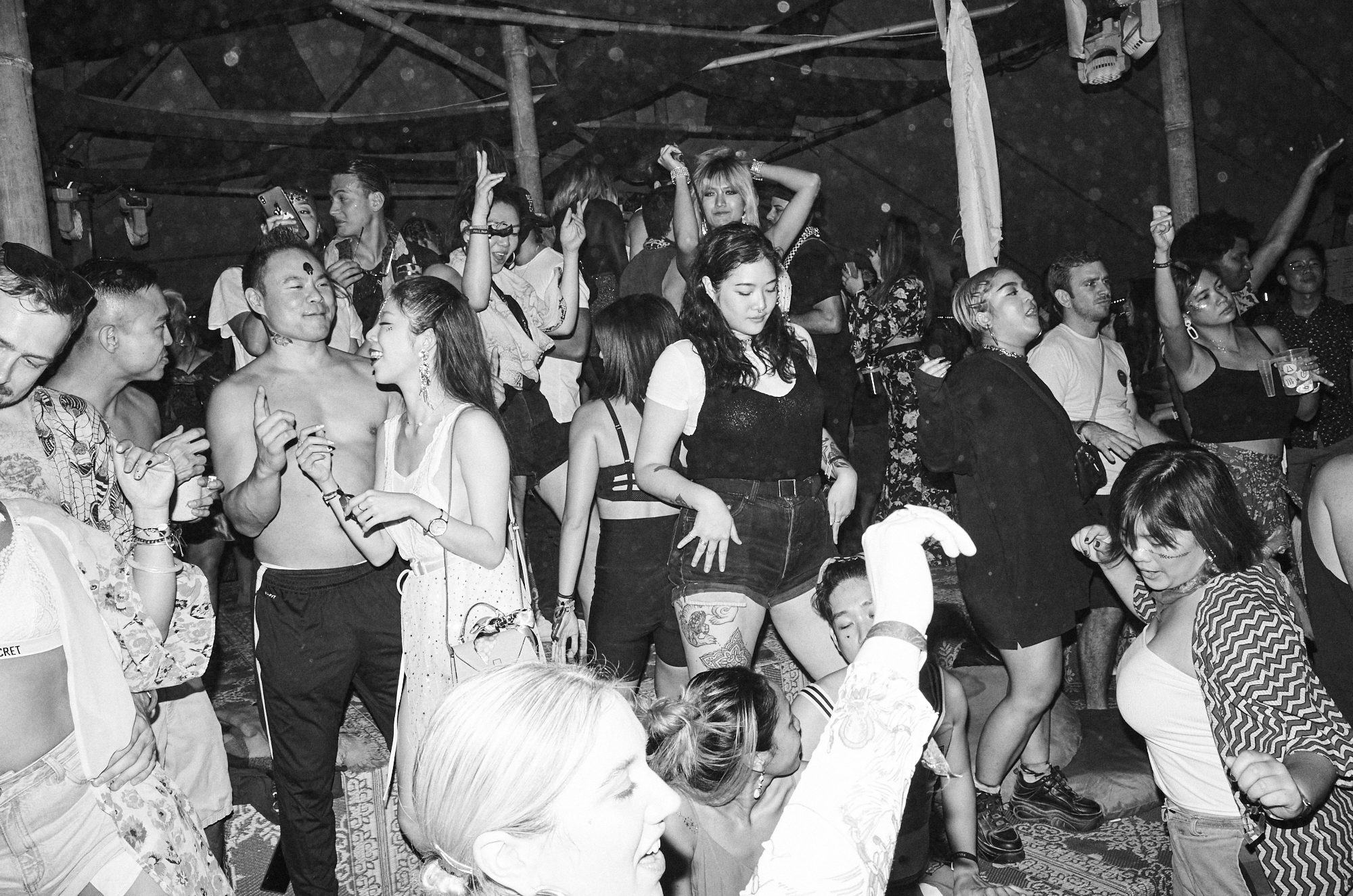
Wonderfruit Festival returns to Thailand in December 2020
